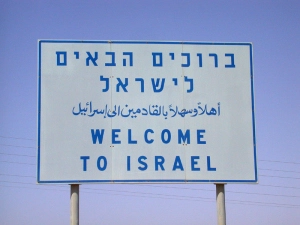Zohar Argov's 1982 smash hit 'The Flower in my garden' : Mizrahi music has been popular for at least 30 years.
Listeners to the March 26th/27th edition of the BBC World Service programme ‘The Cultural Frontline’ heard a long item (from 20:17 here) which presented a caricature of Israel and Israeli Jews from Arab lands which is rife with subtly misleading inaccuracy and omission. An abridged version of the item was
promoted separately on social media.
The programme’s synopsis misleadingly describes the item as follows:
“Writer
Khaled Diab explains why Mizrahi, or Eastern Jewish, music is becoming
popular amongst both Israeli and Palestinian young people.”
Longtime readers of the Guardian will of course be familiar with Khaled Diab: he has after all been promoting his ‘one-stater’ ideas on its pages for years and he is the man who, in 2009, tried to persuade them
that the solution to the Arab-Israeli conflict ought to be modelled on
his adopted homeland of Belgium – an idea which might currently seem
even less plausible than it did at the time.So let’s take a look at some of the notions Diab promotes on this generous BBC World Service platform. Following a rather long and flowery introduction, Diab gets to his subject matter:
“Although
Israel’s image abroad and the self-image it projects is very Western,
about half of its Jewish population originates in the Middle East.”
“But Israel is generally coy of showing its Arab face to the world while many Arabs don’t like seeing it.”
He continues:
“Known as
Mizrahi or Eastern Jews in Hebrew, the first generation were born in
Arab countries. The second generation grew up in Arabic speaking
households and many in the third generation are busy rediscovering their
roots. The first generation had it tough. They fled their homelands out
of fear following the creation of Israel.”
He goes on:
“Their Arab
culture, which was also the culture of the enemy, was shunned and looked
down upon by the Ashkenazi pioneers who founded Israel. This led the
Mizrahim to seek escape from their offending Mizrahiness [sic].”
Diab continues:
“However even
if their culture was shunned in public, the Mizrahim maintained it in
private, speaking Arabic at home and listening to the music they had
grown up with. Some of the musicians who moved to Israel were among the
crème de la crème of Arabic music but found no interest from the
Ashkenazi establishment. These included Daoud and Salah al Kuwaiti. Born
in Kuwait to an Iraqi-Jewish family, the Kuwaiti brothers were popular
with both the political elite – including Iraq’s then King Faisal – and
the masses in Iraq and the Gulf, though they were expunged for decades
from the Arab collective memory. In Israel they found little better.
Salah and Daoud were forced to eke out an existence as shopkeepers in
Tel Aviv and sang in small bars. Decades later, Daoud’s grandson Dudu
Tassa revived their memory by fusing their songs with the guitar riffs
he had become famous for as a rocker.”
Here is Dudu Tassa’s own account of his grandfather’s move to Israel:
“In the
beginning of the 1950s, they decided to leave Baghdad and join the big
wave of emigration from Iraq to the newly-established Israel. In spite
of their wealth and of the wide range of possibilities before them Saleh
and Daud had to leave everything behind. They emigrated to the young
Jewish state without using their connections to gain permission to take
their property with them.
Saleh and
Daud’s status in Iraq was of no use to them when faced with the
difficulties of finding their place in Israel. Their welcome in the new
country was harsh due to the mass migration of Jews from oppressive Arab
regimes they were sent first to live in a temporary tent camp in Beer
Yaakov. Later they moved to the Hatikva quarter of Tel Aviv, there
sometimes they used to play in the Noah café. Upon their arrival Saleh
and Daud began playing and performing also in the Arab channel of “The
Voice of Israel” (Israeli radio), soon becoming two of its leaders. They
performed as guest soloists with the Arabic orchestra of the Israeli
Radio led by Zuzu Mussa. For many years they gave a regular live radio
performance, with thousands of people in Israel and millions in Iraq and
Kuwait listening.”
Diab then tells listeners that:
“Recent years
have seen Mizrahi music come out of the home and onto radio, TV and the
club scene. You can hear it at parties, weddings and even on Saturday
nights at Mahane Yehuda; Jerusalem’s covered market.”
Diab does not clarify what he means by
“recent” but obviously his definition is somewhat different to that of
the dictionary given that in 1971 the Israeli Broadcasting Authority
produced the first Mizrahi song festival which was aired on radio and
screened on television. Apparently he has never heard of Zohar Argov’s
smash hit ‘The Flower in my Garden’ from 1982.Read post in full
More from and about Khaled Diab

‘... in which Arabic is one of three official languages’ – last time I looked, Israel had two official languages: Arabic and Hebrew.
ReplyDeleteI’ve seen the mistake of thinking that English is also official in Israel some time before now. It is not so, and Israel is not part of any mythical Anglosphere.